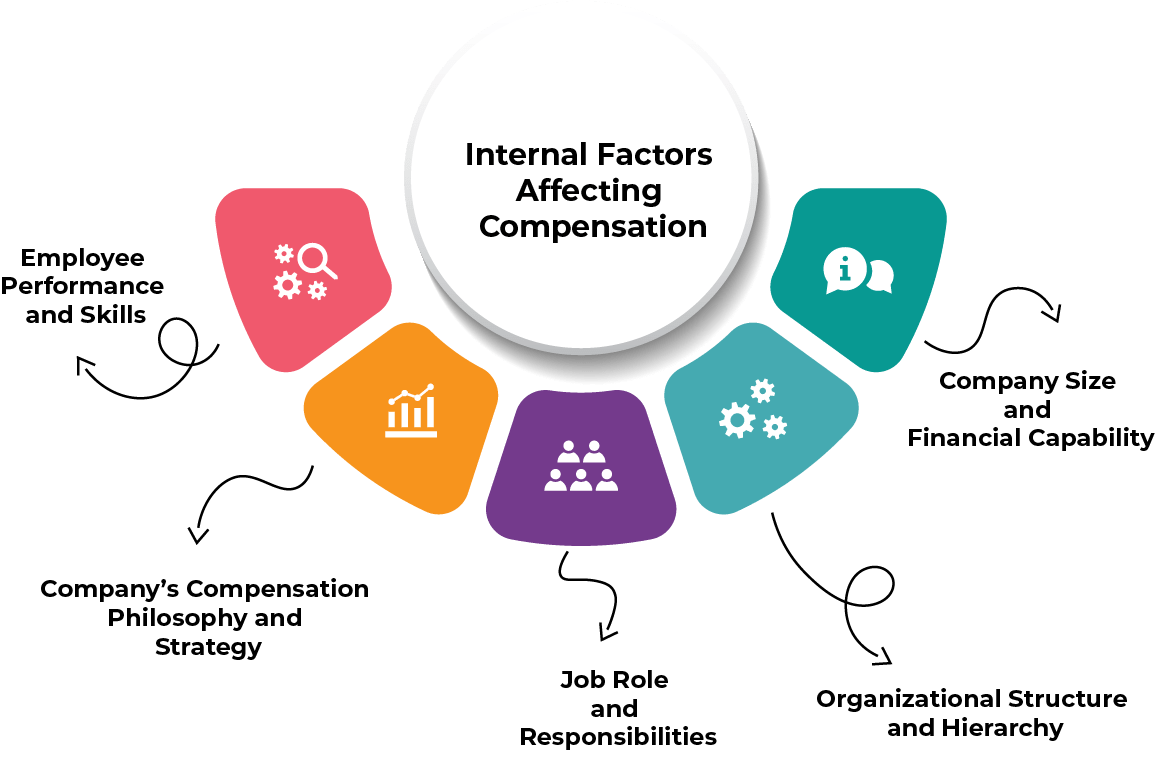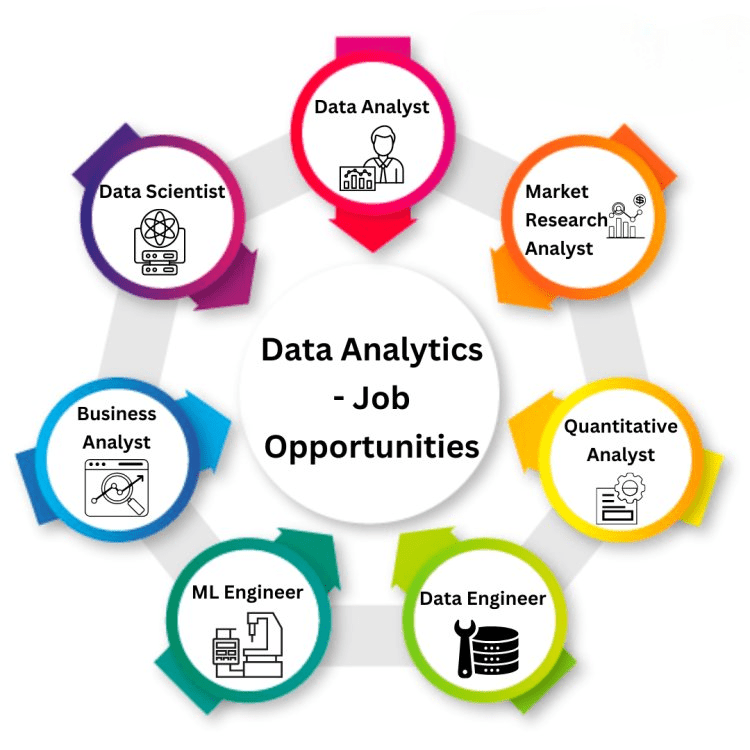
- Introduction to Data Analyst Salary Trends
- Factors Influencing Salary Packages
- Entry-Level Data Analyst Salary
- Mid-Level Data Analyst Salary
- Senior-Level Data Analyst Salary
- Salary Comparison by Location
- Salary Comparison by Industry
- Skills Impacting Salary
- Certification and Its Impact on Salary
- Freelance and Remote Salary Trends
- Benefits and Perks for Data Analysts
- Tips to Negotiate a Higher Salary
Introduction to Data Analyst Salary Trends
In today’s data-driven landscape, data analysts play a vital role as organizations increasingly depend on data to guide decisions and shape strategic direction. These professionals decode complex datasets, extract actionable insights, and drive improvements in performance and outcomes. As reliance on analytics intensifies, so does the demand for skilled analysts leading to rising salaries across the board. This trend reflects the growing recognition of their value across industries. For both newcomers and seasoned professionals, keeping up with salary patterns is crucial for effective career planning, setting informed expectations, and negotiating competitive pay. Engaging in Data Science Training is a smart way to stay competitive, enhance skills, and take advantage of evolving opportunities in this dynamic field.
Would You Like to Know More About Data Science? Sign Up For Our Data Science Course Training Now!
Factors Influencing Salary Packages
Several interconnected factors influence the salary of a data analyst. These factors determine both the entry-point and long-term earning potential in this career path:
- Educational Background: A degree in data science, computer science, statistics, or a related field is typically the baseline requirement. Advanced degrees such as a Master’s or Ph.D. in a relevant discipline can elevate salary prospects significantly.
- Years of Experience: Experience is a primary determinant. As professionals gain more hands-on experience, they move into higher-paying roles.
- Geographical Location: Salaries vary widely depending on the location. High-cost metropolitan areas and tech hubs tend to offer higher salaries to compensate for living expenses.
- Industry of Employment: Industries such as finance, technology, pharmaceuticals, and consulting generally pay more due to their reliance on advanced analytics.
- Skill Set and Technical Proficiency: Mastery of tools like SQL, Python, R, Power BI, Tableau, Excel, and cloud platforms like AWS and Azure significantly impacts earning potential.
- Certifications and Continuous Learning: Professional certifications demonstrate commitment and competence, often leading to better compensation.

Entry-Level Data Analyst Salary
Entry-level data analysts are usually recent graduates or professionals transitioning from related fields into analytics. They handle foundational tasks such as data cleaning, organizing datasets, generating basic reports, and supporting senior analysts, playing a crucial role in preparing data for deeper analysis. In the U.S., their average salary ranges from $55,000 to $70,000 annually, while in India it typically falls between INR 4 to 6 LPA, depending on the employer and location. These roles often involve tools like Excel, SQL, Power BI, and introductory Python, along with essential skills in data structures, basic statistics, and analytical thinking. For those looking to enter the field, understanding Data Science Course eligibility is a key step, as it ensures the necessary qualifications and background are in place. Common job titles include Junior Data Analyst, Data Analyst I, Associate Analyst, and Data Technician. While responsibilities at this level are more focused on core tasks, the experience gained provides a solid foundation for advancing into more complex roles within the data analytics domain.
Mid-Level Data Analyst Salary
Mid-level data analysts have typically accrued 3 to 5 years of professional experience. They are expected to take on more complex data tasks, including building predictive models, developing dashboards, and generating business intelligence reports.
- Average Salary: Mid-level data analysts earn between $70,000 and $90,000 annually in the U.S. In India, salaries range between INR 7 to 12 LPA.
- Skill Requirements: Proficiency in SQL, Python/R, statistical modeling, and data visualization tools like Tableau and Power BI.
- Responsibilities: Designing KPIs, working with cross-functional teams, automating reports, and supporting strategic decisions.
- Job Titles: Data Analyst II, Business Data Analyst, Reporting Analyst, Data Consultant.
Professionals at this stage are often expected to mentor junior analysts and contribute more directly to business outcomes.
Senior-Level Data Analyst Salary
Senior data analysts typically have over five years of experience and often hold leadership or specialized roles within their organizations, playing a critical part in high-level decision-making and long-term business strategy. In the U.S., salaries range from $90,000 to $130,000, with higher earnings possible based on expertise and employer; in the UK, they earn between £60,000 and £90,000, and in India, between INR 15 to 25 LPA. These professionals are expected to have advanced skills in areas such as machine learning, big data tools like Spark and Hadoop, and complex data modeling. They lead analytics projects, present findings to executives, manage data governance, and supervise analyst teams. Common titles include Senior Data Analyst, Lead Data Analyst, Data Analytics Manager, and Business Intelligence Manager. To stay competitive and effectively drive analytics initiatives, many professionals turn to Data Science Training to sharpen their technical, strategic, and leadership skills, ensuring they can transform complex data into actionable insights that guide data-driven decision-making.
Salary Comparison by Location
Location remains one of the most critical determinants of salary. Here is a breakdown by prominent global cities and regions:
- United States: San Francisco, New York City, Seattle, and Boston offer the highest salaries due to their booming tech sectors. Salaries can exceed $130,000 for senior roles.
- India: Bengaluru, Hyderabad, Mumbai, and Pune are top-paying cities. Senior professionals can earn INR 20+ LPA in leading companies.
- United Kingdom: London offers the most competitive packages, with salaries often 25% higher than in other UK regions.
- Canada: Toronto and Vancouver lead in pay scales; salaries for experienced analysts can go beyond CAD 100,000.
- Australia:Sydney and Melbourne offer average salaries ranging from AUD 80,000 to 120,000 depending on experience.
- Germany: Berlin and Munich lead in pay; average salaries for mid-to-senior roles range from EUR 60,000 to 90,000.
Want to Pursue a Data Science Master’s Degree? Enroll For Data Science Masters Course Today!
Salary Comparison by Industry
Different industries place varying levels of emphasis on data analytics, each recognizing its value in unique ways. In the Technology and Software sector, data analytics is highly valued due to its central role in driving innovation, and companies in this industry offer high salaries to attract top talent. The Finance and Banking sector demands complex data modeling, risk analysis, and forecasting, often paying 10–20% above the average salary to professionals with expertise in these areas. In Healthcare and Pharmaceuticals, there is an increasing reliance on data for diagnostics, patient care, and operational efficiency, making salaries in this field competitive as organizations strive to utilize data for better outcomes. For professionals aiming to succeed across these sectors, mastering the Essential Data Analyst Skills is crucial to meet the evolving demands and stay competitive. E-commerce and Retail industries place a strong emphasis on data-driven decision-making, particularly for marketing strategies, inventory management, and improving customer retention, often requiring sophisticated analytics capabilities. Consulting firms also offer competitive salaries as they deliver analytics services across various sectors, assisting clients in making data-backed decisions. Lastly, in Manufacturing and Logistics, the focus is on using data to optimize supply chains and predictive maintenance, offering moderate to high salaries to professionals who help improve operational efficiencies. Each industry tailors its approach to data analytics based on specific needs, leading to varied compensation and demand for expertise.
Skills Impacting Salary
A data analyst’s earning potential is directly tied to their skill set. Here are the most impactful ones:
- Data Management: SQL, NoSQL, database design.
- Programming Languages: Python, R, and sometimes Java or Scala for advanced analytics.
- Visualization Tools: Tableau, Power BI, QlikView, Looker.
- Statistical Analysis: Regression, hypothesis testing, ANOVA, time-series forecasting.
- Machine Learning: Basic ML models, clustering, classification algorithms.
- Big Data and Cloud: Hadoop, Spark, AWS, GCP, Azure.
- Soft Skills: Communication, business acumen, presentation skills.
Continuous upskilling is essential for staying competitive and increasing compensation.

Certification and Its Impact on Salary
Certifications play a crucial role in validating expertise and can significantly enhance job prospects and salary potential for data analysts. Among the most recognized, the Google Data Analytics Professional Certificate offers foundational skills ideal for beginners entering the field. The Microsoft Certified: Data Analyst Associate certification highlights proficiency in Power BI, which is especially valuable in corporate settings where business intelligence tools support key decision-making. The IBM Data Analyst Professional Certificate covers essential tools like Python, SQL, Excel, and Cognos, aligning with industry demands. For professionals targeting more advanced roles, the SAS Certified Data Scientist certification focuses on complex statistical analysis, suitable for high-level data environments. As data roles evolve, many professionals also choose to Explore Artificial Intelligence Techniques to stay ahead, integrating AI with analytics for deeper insights. The Cloudera Certified Associate (CCA) Data Analyst certification is also valuable for those specializing in SQL and handling large datasets in big data settings. On average, certified professionals earn 10–20% more than those without certifications, reflecting the value of enhanced skills and specialized knowledge in the data analytics field.
Freelance and Remote Salary Trends
Remote and freelance data analysis roles are gaining momentum due to the rise in remote work culture and global freelancing platforms:
- Freelance Rates: Depend on expertise, portfolio, and location. U.S.-based freelancers can earn $50 to $120/hour.
- Remote Full-Time Roles: Often come with salaries competitive to on-site roles, especially in tech-driven companies.
- Global Work Opportunities: Platforms like Toptal, Upwork, Freelancer, and Guru help analysts tap into international markets.
- Top Paying Clients: U.S., UK, Australia, Canada-based clients generally pay premium rates.
Remote work provides flexibility, access to global projects, and the potential for higher income.
Benefits and Perks for Data Analysts
Beyond salary, employers offer a wide range of benefits to attract and retain top data analytics talent. Health and dental insurance provide essential medical coverage to support employee well-being, while retirement plans such as 401(k) or Provident Fund (PF) often include employer contributions to help employees save for the future. Performance bonuses, based on project completion, annual reviews, and KPIs, offer financial incentives for exceptional work. Flexible work hours are especially common in tech environments, allowing for better work-life integration. Remote work options whether fully remote or hybrid are increasingly standard, giving professionals more freedom in where and how they work. Many organizations also provide professional development budgets, enabling employees to pursue certifications, attend conferences, or take courses like What is Data Science in Python which help build relevant skills and keep pace with industry trends. Additionally, stock options or ESOPs are frequently offered by startups and tech firms, giving employees a stake in the company’s success. Generous paid time off policies, including vacation, sick leave, and parental leave, further enhance job satisfaction. Altogether, these benefits contribute significantly to overall compensation and play a crucial role in supporting both personal and professional growth.
Tips to Negotiate a Higher Salary
Negotiating salary is an essential skill for maximizing career value. Here are key strategies:
- Do Market Research: Use platforms like Glassdoor, Payscale, and LinkedIn to understand market rates.
- Quantify Achievements: Highlight how your insights led to cost savings, revenue growth, or process efficiency.
- Showcase Certifications: Use credentials as proof of up-to-date skills.
- Present Competing Offers: If possible, leverage offers to strengthen your negotiation stance.
- Be Flexible: Consider total compensation bonuses, benefits, and work-life balance.
- Ask Thoughtfully: Frame your ask based on value, not entitlement.
- Stay Professional: Maintain a respectful tone during discussions.
Negotiation should be seen as a constructive dialogue rather than a confrontation. Approaching it with thorough preparation, confidence, and well-researched evidence is essential for achieving positive results. In terms of career planning, understanding salary trends within the data analytics field is vital. Whether you’re a recent graduate, a professional shifting into data analytics, or an experienced analyst, knowing industry benchmarks can guide your decisions effectively. Data analysis is central to modern business operations, with data professionals playing a key role in shaping strategy, boosting efficiency, and driving innovation. As the need for skilled analysts grows, individuals with the right blend of skills, certifications, and practical experience will stand out in the job market. Engaging in continuous learning such as enrolling in Data Science Training helps professionals stay current with evolving tools, technologies, and salary expectations. This ongoing development is essential for making informed career moves and staying competitive. In a rapidly changing field, those who adopt a proactive approach to learning and career growth are best positioned to unlock top-tier opportunities. Whether pursuing an entry-level role or aiming for leadership, keeping skills sharp and knowledge up to date is key to long-term success in data analytics.




